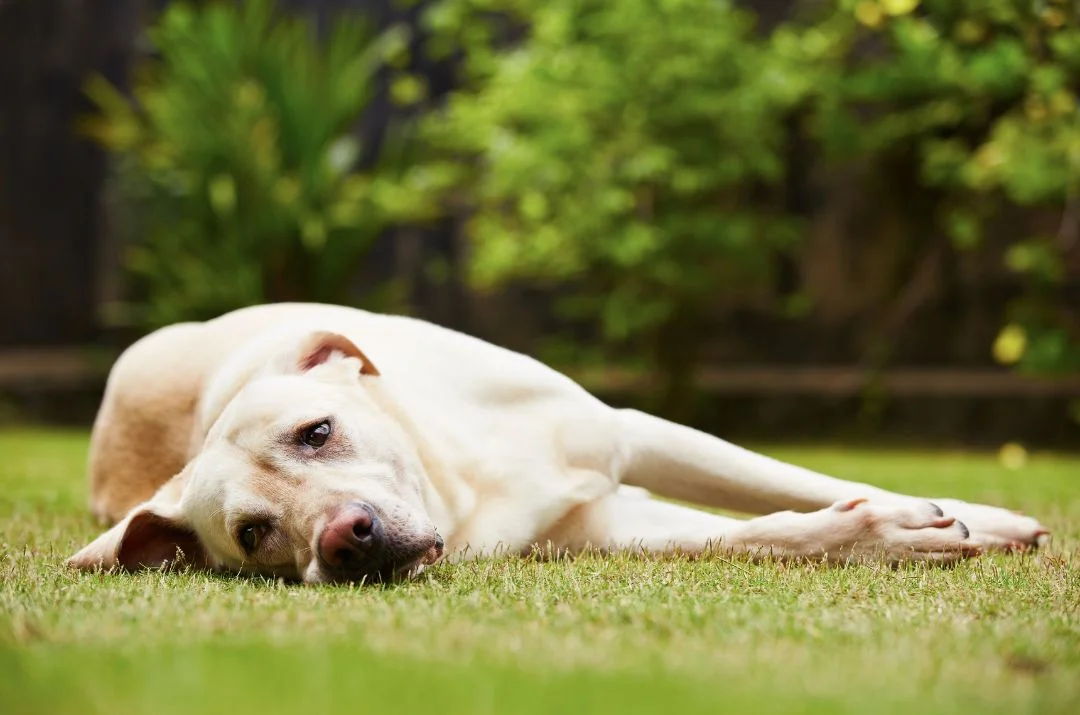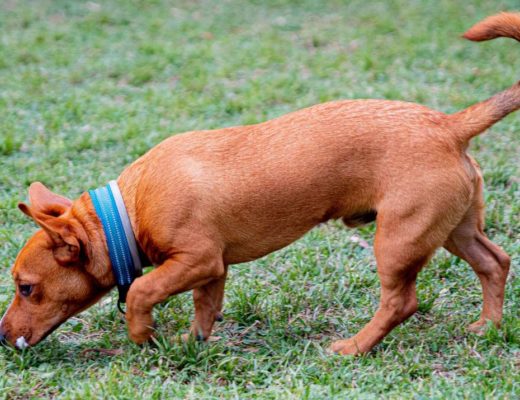Have you ever caught your dog munching on grass and wondered why they do it? While it might seem strange or even concerning, this behavior is actually quite common among our canine companions. In this article, we’ll explore some of the reasons why dogs eat grass and what it might mean for their health.

- Contents:
- Instinctual behavior
- Nutritional deficiencies
- Upset stomachs
- Boredom or anxiety
- Taste and texture
- Nutritional deficiencies
- Conclusion
Instinctual behavior
Dogs are descendants of wolves and other wild canines who ate plants as part of their diet. This instinctual behavior may still be present in dogs, leading them to consume grass as a way to supplement their diet.
If you suspect that your dog may be lacking in certain nutrients, it’s important to speak with your veterinarian about adjusting their diet or providing supplements.
Nutritional deficiencies
Some experts believe that dogs may eat grass to make up for nutritional deficiencies in their diet. For example, if they are lacking in fiber or certain vitamins and minerals, they may turn to grass as a natural source.
@8pawsclub Does your dog eat grass? ? #8pawsclub #dogpsychology #dogtraining #dogtrainer #dogbehavior #doglover #dogoftheday #dogstagram #training #puppytraining #workingdog #dogschool #positivereinforcement #onlinecourses #workdog
♬ original sound – Dog Behavior & Welfare Trainer
Upset stomachs
One of the most common reasons why dogs eat grass is to soothe an upset stomach. Grass can act as a natural emetic, helping dogs to vomit and get rid of any toxins or foreign objects that may be causing discomfort.
If your dog is frequently vomiting or showing other signs of illness, it’s important to seek veterinary attention to rule out any underlying health problems.
Boredom-or-anxiety
In some cases, dogs may eat grass simply because they are bored or anxious. This behavior can be a way to pass the time or relieve stress, much like humans might turn to snacking or other comfort behaviors.

Taste and texture
Finally, some dogs may simply enjoy the taste and texture of grass. While this might seem strange to us, it’s important to remember that dogs have different preferences and instincts than we do.
Nutritional deficiencies
One possible reason why dogs eat grass is to make up for nutritional deficiencies in their diet. Let’s take a closer look at what this might mean:
| Nutrient | What it does | Sources | Signs of deficiency |
|---|---|---|---|
| ? Fiber | Helps regulate digestion | Fruits, vegetables, grains | Constipation, diarrhea, weight gain |
| ? Omega-3 fatty acids | Supports skin and coat health, brain function | Fish, flaxseed, eggs | Dull coat, dry skin, joint pain |
| ? Protein | Builds and repairs muscles, tissues, and organs | Meat, fish, eggs, dairy | Fatigue, muscle loss, slow healing |
| ? Vitamin A | Supports immune function, vision, and skin health | Carrots, sweet potatoes, liver | Night blindness, dry eyes, skin issues |
| ? Vitamin C | Acts as an antioxidant, supports immune function | Citrus fruits, berries, broccoli | Slow healing, frequent infections, joint pain |
If you suspect that your dog may be lacking in any of these nutrients, it’s important to talk to your veterinarian about adjusting their diet and supplementation.
Conclusion
While there are many different reasons why dogs might eat grass, it’s generally not a cause for concern. In fact, it’s a fairly common behavior that many dogs engage in from time to time. However, if you notice that your dog is eating an excessive amount of grass or showing other signs of discomfort or illness, it’s important to seek veterinary attention.
FAQ
Is it normal for dogs to eat grass?
Yes, it’s a common behavior among dogs and usually nothing to worry about.
Can eating grass be harmful to dogs?
In most cases, no. However, if the grass has been treated with pesticides or other chemicals, it could be toxic.
Why do dogs vomit after eating grass?
Grass can act as a natural emetic, helping dogs to induce vomiting and get rid of any toxins or foreign objects that may be causing discomfort.
Should I be concerned if my dog eats grass regularly?
Not necessarily. However, if you notice that your dog is eating an excessive amount of grass or showing other signs of discomfort or illness, it’s important to seek veterinary attention.
Can eating grass indicate a health problem in dogs?
In some cases, yes. If your dog is eating grass excessively or showing other signs of illness, it could be a symptom of an underlying health problem.
What can I do to prevent my dog from eating grass?
While it may be difficult to stop your dog from eating grass altogether, you can try distracting them with toys or other activities when they start to graze.
Should I change my dog’s diet if they are eating grass?
If you suspect that your dog may be lacking in certain nutrients, it’s a good idea to talk to your veterinarian about adjusting their diet and supplementation.




